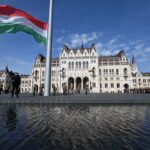Namibia has marked a historic milestone by observing its first Genocide Remembrance Day on May 28, 2025. The national holiday honors more than 70,000 victims of what many historians recognize as the first genocide of the 20th century—carried out by German colonial forces against the Ovaherero and Nama people between 1904 and 1908.
The memorial comes after decades of advocacy and a growing international call for reparations and recognition of Germany’s colonial atrocities in what was then known as German South West Africa. The victims were targeted for resisting the seizure of their land and livestock by German colonizers.
A National Day of Healing and Resistance
The Namibian government has stated that the holiday, which will be observed annually, is part of a “journey of healing.” It includes a minute of silence and a candlelight vigil outside parliament in Windhoek. The date, May 28, was chosen to commemorate the 1907 closure of German-run concentration camps in Namibia, which followed growing global condemnation.
Germany’s Legacy: Concentration Camps and Pseudoscience
Between 1904 and 1908, German authorities used extermination orders, forced labor, and concentration camps to suppress resistance. Many were worked to death or died from exhaustion in these camps, with pre-printed death certificates listing “death by exhaustion” waiting in anticipation.
To compound the horrors, the remains of some victims were shipped to Germany for discredited racial experiments, aimed at proving white European superiority.
Germany’s Acknowledgment: Too Little, Too Late?
After years of pressure, Germany formally acknowledged the genocide in 2021 and offered €1.1 billion in development aid over 30 years. However, Namibia rejected the offer, citing the absence of a formal apology or explicit mention of reparations.
“That was the joke of the century,” said Uahimisa Kaapehi, an Ovaherero descendent and town councillor in Swakopmund. “We want our land. Money is nothing.”
While a draft deal that includes a formal apology and an additional €50 million has reportedly been reached, many Ovaherero and Nama activists argue they were left out of the negotiations. Critics call it an “insult” and a continuation of neo-colonial attitudes.
Land Restitution and True Justice
Campaigners are now pushing for the return of ancestral lands currently held by Namibia’s German-speaking community. Many point to the irony of Germany demanding “reparations” in the form of livestock from Ovaherero and Nama people following anti-colonial resistance—amounting to 12,000 cows, worth millions today.
Contemporary Echoes of Colonialism

Germany has faced further scrutiny for offering to defend Israel at the International Court of Justice amid genocide allegations related to Gaza, despite not having fully atoned for its own genocidal past in Namibia. Former Namibian President Hage Geingob called out this hypocrisy, emphasizing that “the German government is yet to fully atone for the genocide it committed on Namibian soil.”
Conclusion: A Step Forward Amidst Lingering Pain
While the establishment of Genocide Remembrance Day is a step toward national healing and historical reckoning, the road to restorative justice remains long. Many Namibians continue to demand not only formal apologies but meaningful action, including land restitution and direct reparations.
This memorial is not just about remembering the past—it is about reshaping the future.
For more on Namibia’s path to justice, see our coverage of Germany’s Colonial Legacy in Africa and Reparations in International Law.









